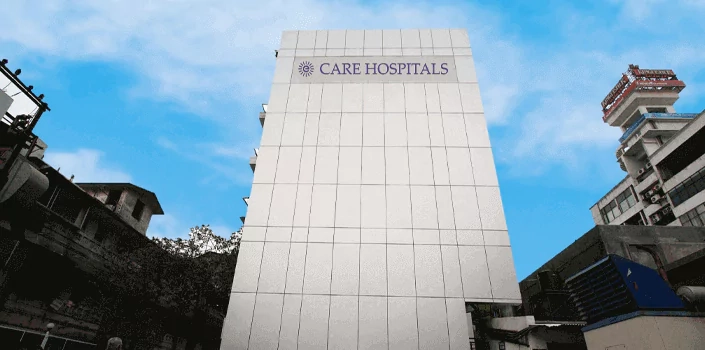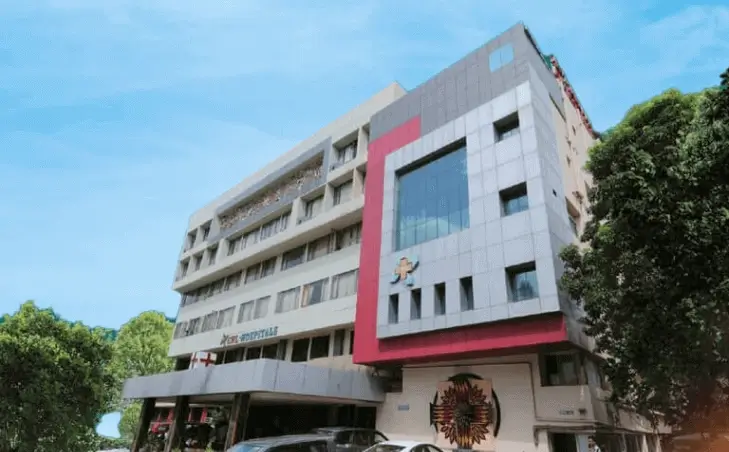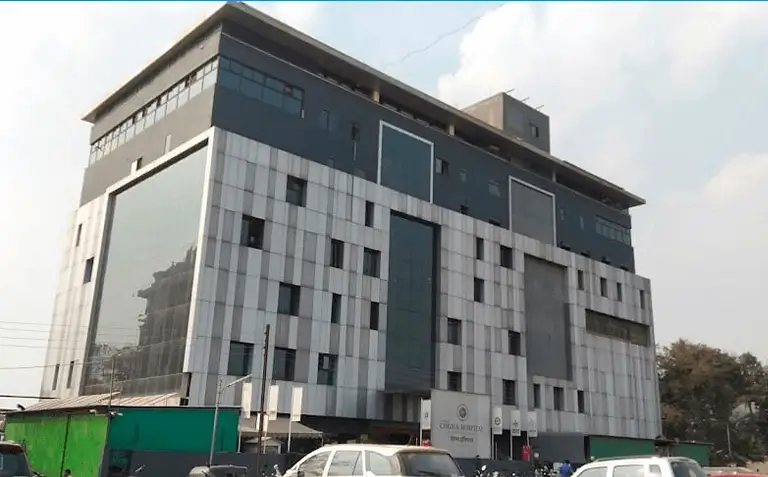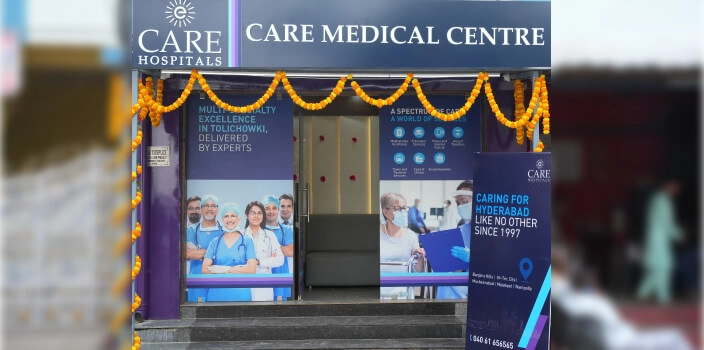-
Doctors
-
Specialities & Treatments
Centre of Excellence
Specialties
Treatments and Procedures
Hospitals & Directions HyderabadCARE Hospitals, Banjara Hills CARE Outpatient Centre, Banjara Hills CARE Hospitals, HITEC City CARE Hospitals, Nampally Gurunanak CARE Hospitals, Musheerabad CARE Hospitals Outpatient Centre, HITEC City CARE Hospitals, Malakpet
HyderabadCARE Hospitals, Banjara Hills CARE Outpatient Centre, Banjara Hills CARE Hospitals, HITEC City CARE Hospitals, Nampally Gurunanak CARE Hospitals, Musheerabad CARE Hospitals Outpatient Centre, HITEC City CARE Hospitals, Malakpet Raipur
Raipur
 Bhubaneswar
Bhubaneswar Visakhapatnam
Visakhapatnam
 Nagpur
Nagpur
 Indore
Indore
 Chh. Sambhajinagar
Chh. SambhajinagarClinics & Medical Centers
Book an AppointmentContact Us
Online Lab Reports
Book an Appointment
Consult Super-Specialist Doctors at CARE Hospitals

Best Hospital for Nephrectomy Surgery in Hyderabad
- Advanced Technology
- Shorter Hospital Stay
- Pre & Post-Operative Care
- All Insurance Accepted

Chat With Our Experts
Get second opinion on Whatsapp
25 lakhs+
Happy Patients
Experienced and
skilled surgeons
17
Health Care Facilities
Top most Referral Centre
for Complex Surgeries
Advanced Nephrectomy Surgery
Doctors perform nephrectomy surgery to remove part or all of a kidney. Today, it is a common treatment for various kidney conditions, especially when you have kidney cancer.
Surgeons can perform different types of nephrectomy. In recent years, laparoscopic nephrectomy has become popular because it's minimally invasive. This technique helps patients recover faster and experience less pain than traditional methods.
This article explains the nephrectomy surgery, its indications, and what to expect during and after your surgery.
Why CARE Group Hospitals is Your Top Choice for Nephrectomy Surgery in Hyderabad
CARE Group Hospitals leads in kidney removal procedures in Hyderabad. The nephrology department has board-certified doctors who specialise in complex kidney conditions.
At CARE Hospitals, skilled surgeons with years of expertise in performing kidney-related surgeries, including complex nephrectomy procedures create personalised treatment plans that match each patient's unique requirements.
Best Nephrectomy Surgery Doctors in India


State-of-the-art Surgical Innovations at CARE Hospital
The hospital uses modern surgical approaches that have changed traditional methods:
- Minimally invasive techniques need only small keyhole incisions
- Laparoscopic radical nephrectomy works for patients with tumour stages up to T1-3, N0, and M0
- Robot-assisted surgery improves surgeon precision
Indications for Nephrectomy Surgery
Kidney removal becomes necessary in several medical conditions:
- Kidney damage from infection, stones, or trauma
- Recurring kidney infections that don't respond to treatment
- Birth-related kidney defects affecting function
- Blood supply problems that cause high blood pressure
Types of Nephrectomy Procedures
CARE Hospitals' surgeons choose from the following several proven techniques:
- Partial nephrectomy: Saves healthy kidney tissue while removing only the tumour
- Radical nephrectomy: Removes the affected kidney and surrounding tissues completely
- Open nephrectomy: Uses traditional larger incisions
- Laparoscopic nephrectomy: Requires small incisions and specialised instruments
Pre-surgery Preparation
A complete pre-surgical assessment starts the nephrectomy preparation process. Patients need several tests to make sure they are ready for surgery:
- Blood tests to check kidney function
- Electrocardiogram (ECG) for heart health
- Chest x-ray or lung function tests
- Breathing exercises to prevent post-operative infections
Nephrectomy Surgical Procedure
Each patient's surgical approach is unique. A laparoscopic nephrectomy needs small incisions (0.5-1 cm) and uses camera guidance, which leads to faster recovery. The open nephrectomy requires a larger cut (8-12 cm) in the abdomen or flank. Robot-assisted procedures boost precision and give benefits like laparoscopic techniques.
Post-surgery Recovery
After a nephrectomy procedure, patients should expect:
- Hospital stays of 1-7 days based on surgery type
- Full recovery period of 6-12 weeks
- Pain management starts right after surgery, and patients begin moving with help.
- Step-by-step return to normal activities
- The healthcare team encourages walking within 24 hours to avoid complications.
Risks and Complications
The possible risks in some rare cases include:
- Bleeding
- Infection
- Blood clots
- Nearby organ damage
- Long-term risks like high blood pressure and chronic kidney disease
Compression stockings and early movement help prevent clots.
Benefits of Nephrectomy Surgery
The procedure works to:
- Remove cancerous tissue
- Stop persistent infections
- Fix damage from trauma or stones
- Control blood pressure in specific cases
- Removing a damaged or cancerous kidney can stop the illness from spreading and give your body a better chance to heal and stay healthy.
Insurance Assistance for Nephrectomy surgery
Medical insurance pays the treatment costs of this surgery if you are eligible. Insurance coverage details should be checked early to prepare for treatment costs.
Second Opinion for Nephrectomy surgery
Cancer patients should get a second opinion to confirm their diagnosis and treatment plan. Second opinions are a great way to get more treatment choices, including kidney-preserving options you might not know about.
Conclusion
Nephrectomy surgery plays a crucial role in treating patients with serious kidney conditions. Today's patients can choose between traditional open surgery, laparoscopic techniques, and robot-assisted procedures.
CARE Group Hospitals in Hyderabad offers complete nephrectomy services with their core team of specialists and modern surgical approaches. Their focus on minimally invasive techniques helps patients feel less pain and recover faster than traditional methods.
Kidney health shapes your overall wellbeing. Picking the right medical team and approach for nephrectomy surgery affects recovery and long-term outcomes by a lot. CARE Hospitals brings expertise and technology needed for successful kidney procedures, making them a great choice for the patients who need this life-changing surgery.
Nephrectomy Surgery Hospitals in India
-
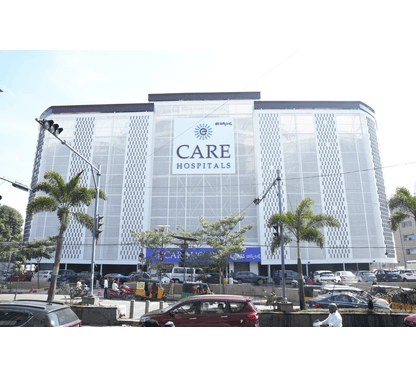
CARE Hospitals, Banjara Hills, Hyderabad
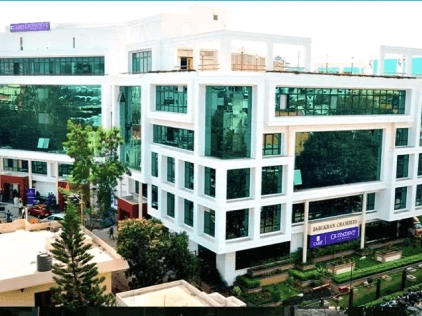
CARE Hospitals Outpatient Centre, Banjara Hills, Hyderabad
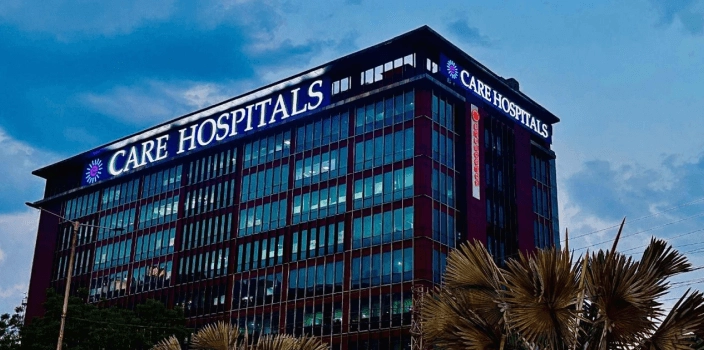
CARE Hospitals, HITEC City, Hyderabad
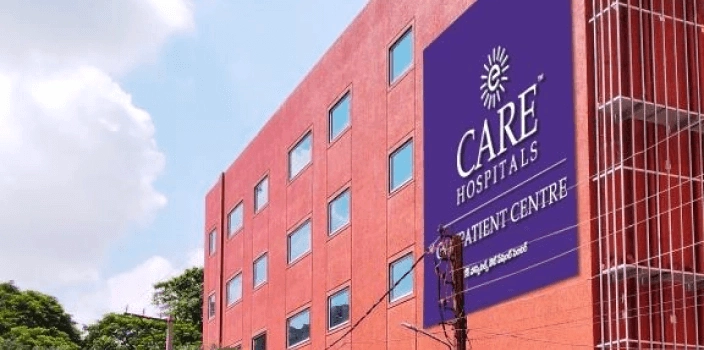
CARE Hospitals Outpatient Centre, HITEC City, Hyderabad
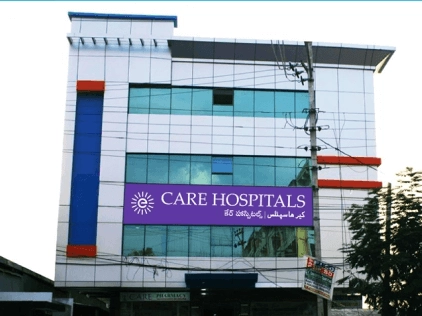
Gurunanak CARE Hospitals, Musheerabad, Hyderabad
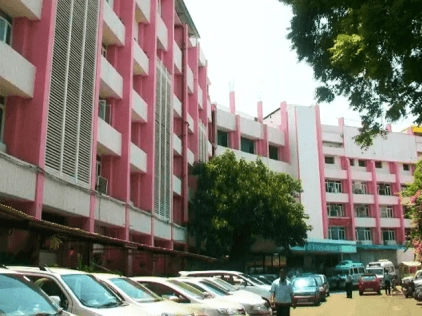
CARE Hospitals, Nampally, Hyderabad
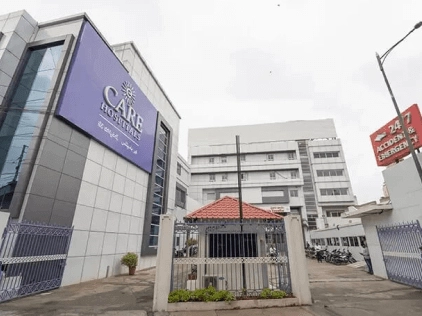
CARE Hospitals, Malakpet, Hyderabad
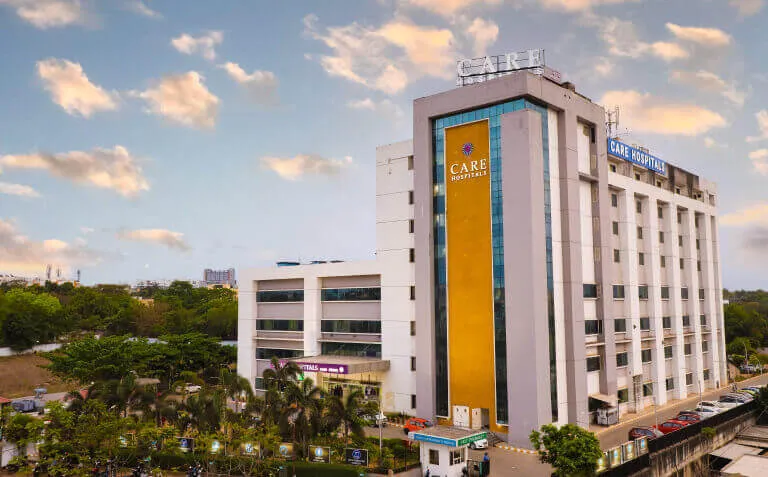
CARE Hospitals, Bhubaneswar
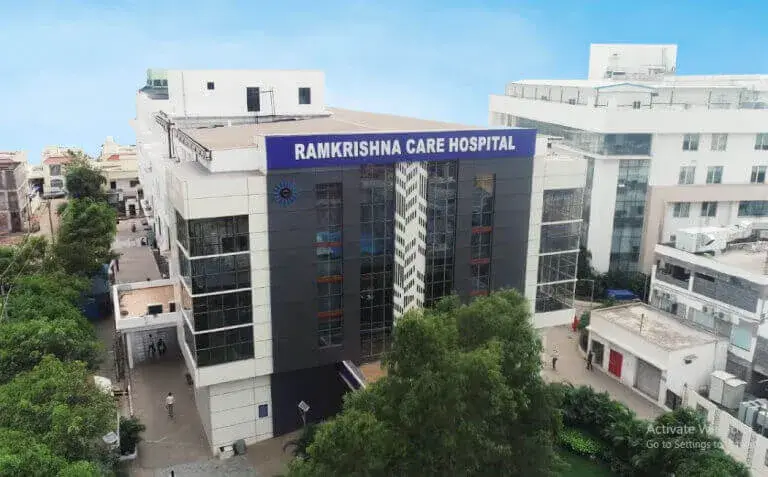
Ramkrishna CARE Hospitals, Raipur
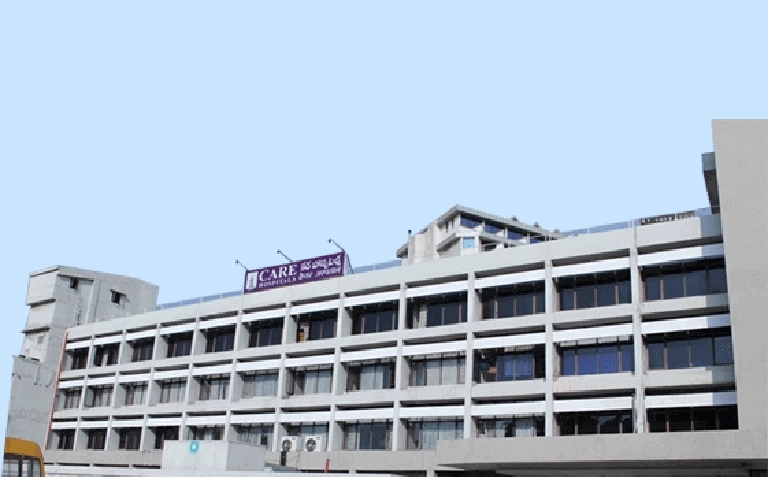
CARE Hospitals, Ramnagar, Visakhapatnam
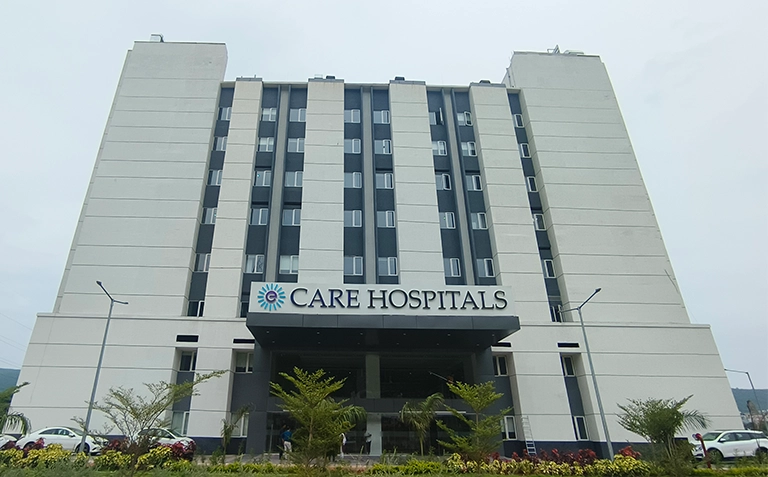
CARE Hospitals, Health City, Arilova
Related Surgeries
- Best Hospital for Bladder Suspension Surgery in Hyderabad
- Best Hospitals for Vasectomy in Hyderabad
- Best Hospital for Circumcision Surgery in Hyderabad
- Best Hospital for DJ Stent Removal Surgery in Hyderabad
- Best Hospital for Laser Prostatectomy Surgery in Hyderabad
- Best Hospital for PCNL Surgery in Hyderabad
- Best Hospital for Penile Implant Surgery in Hyderabad
- Best Hospital for RIRS Surgery in Hyderabad
- Best Hospital for Turp Surgery in Hyderabad
- Best Hospital for Ureteroscopic lithotripsy Surgery in Hyderabad
- Best Hospital For Epididymectomy Surgery in Hyderabad
- Best Hospital for TURBT Surgery in Hyderabad
- Best Hospital for Varicocelectomy Surgery in Hyderabad
- Best Hospitals for Miniperc Surgery in Hyderabad
- Best Hospital for Nephrectomy Surgery in Hyderabad
- Best Frenuloplasty Surgery in Hyderabad
- Bladder Neck Incision Surgery in Hyderabad
- Best Hospital for Prostatectomy Surgery in Hyderabad
- Best Hospital for Urethral Stent Placement Surgery in Hyderabad
- Best Hospital for Urethrotomy Surgery in Hyderabad
- Best Hospital for Urethroplasty Surgery in Hyderabad
- Best Hospital for Endopyelotomy Surgery in Hyderabad
- Best Hospital for Bladder Sling Surgery in Hyderabad
Frequently Asked Questions
Nephrectomy is the surgical removal of part or all of a kidney. The two main types are:
- Radical nephrectomy - removes the entire kidney and sometimes surrounding tissue
- Partial nephrectomy - removes only the diseased portion and preserves healthy kidney tissue
Doctors perform nephrectomy to:
- Remove kidney tumours (cancerous or non-cancerous)
- Treat recurring kidney infections
- Fix serious kidney damage from trauma or stones
- Remove a healthy kidney to transplant
Suitable candidates are patients with:
- Kidney cancer
- Severe kidney damage
- Recurring infections
Yes, nephrectomy is a safe procedure. The success rates depend on:
- Patient's overall health
- Surgeon's experience
- Surgical approach used
Patients feel discomfort and pain after surgery. Pain control methods include:
- Pain medications (tablets or injections)
- Patient-controlled analgesia in some cases
- Pain levels decrease gradually over several days
The surgery usually takes 2-4 hours. Time varies based on:
- Type of procedure (partial vs radical)
- Surgical approach (open vs laparoscopic)
- Patient's anatomy
Yes, nephrectomy is a major surgery. You will need:
- At least one or more days in the hospital
- General anaesthesia
- Substantial recovery time
The potential possible risks include:
- Bleeding and infection
- Blood clots
- Pneumonia after surgery
- Injury to nearby organs
- Anaesthesia complications
Recovery timelines varies from person to person, it includes:
- Hospital stays of 1-7 days based on surgery type
- Full recovery period of 6-12 weeks
Most people live healthy lives with one kidney after nephrectomy. However, long-term effects may include:
- Reduced kidney function
- A need for regular checkups
- Adopting a kidney-friendly lifestyle
During the procedure, doctors administer general anaesthesia to make sure you remain completely unconscious and pain-free.
The surgery is not recommended if you have:
- Probability of kidney failure with your remaining kidney
- Serious bleeding disorders
- Decompensated heart failure
You should avoid:
- High salt food
- High-protein foods
- Bananas, oranges, or tomatoes
- Caffeinated drinks and alcohol
Make sure to stay well-hydrated by sipping water throughout the day—but only as much as your doctor recommends.
Still Have a Question?
















